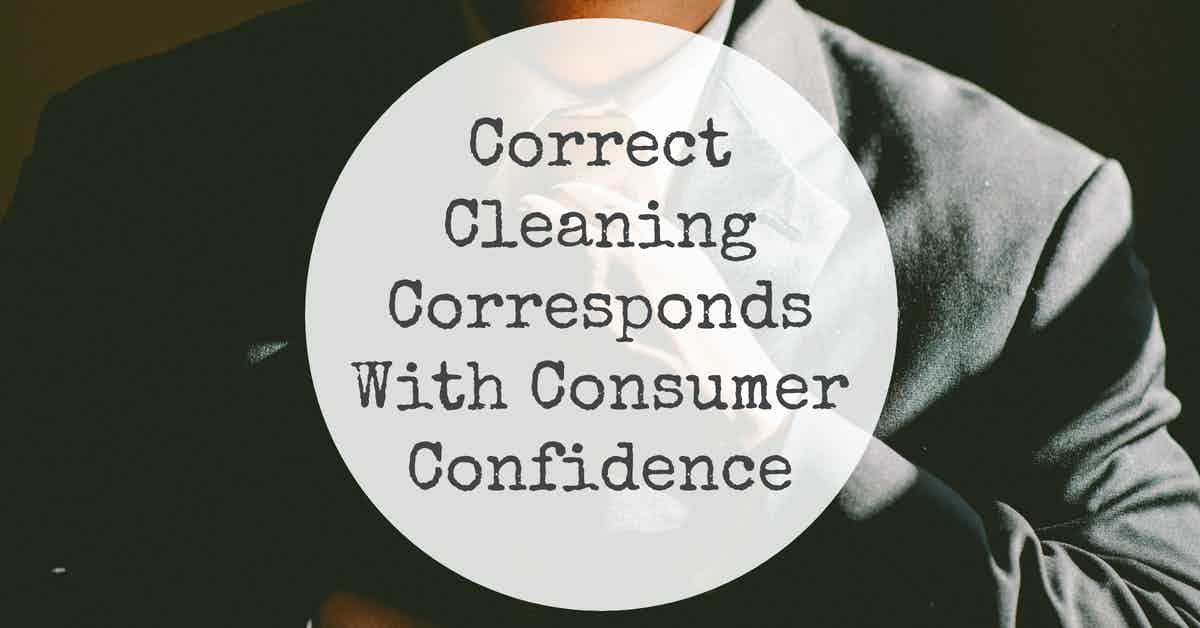Enhanced cleaning practices combined with increased occupant engagement and communication are rapidly emerging as top-level requirements for consumers across multiple industries.

Consumer Fears are Changing the Cleaning Industry
Consumer fears regarding the spread of certain pathogens have led to an increase in unsafe cleaning and disinfection practices due, in large part, to two distinct criteria:
- Increased awareness of the necessity of improved cleaning and hygiene practices, and;
- A lack of information pertaining to the health and safety precautions necessary when cleaning and disinfecting.
This paradox of awareness, combined with a dangerous absence of information, has led to troubling practices, including the direct application of bleach to food items and household cleaning products to the skin.
According to the U.S. Centers for Disease Control and Prevention (CDC);
An Internet panel survey identified gaps in knowledge about safe preparation, use, and storage of cleaners and disinfectants.
Approximately one-third of survey respondents engaged in nonrecommended high-risk practices with the intent of preventing SARS-CoV-2 transmission, including using bleach on food products, applying household cleaning and disinfectant products to skin, and inhaling or ingesting cleaners and disinfectants.
Of the more than 500 U.S. adults surveyed:
- 39% stated they used cleaning and disinfection products in non-recommended, often dangerous ways to prevent themselves from contracting COVID-19.
- 19% applied bleach to food.
- 18% used household cleaning and disinfecting products on their skin.
- 10% misted their body with a cleaning or disinfectant spray.
- 6% inhaled vapors from household cleaners or disinfectants, and;
- 4% drank or gargled diluted bleach solutions, soapy water, or other cleaning and disinfectant solutions.
This led to a range of acute health issues, including:
- Irritation of the nose, skin, and eyes.
- Dizziness, lightheadedness, or headaches.
- Upset stomach or nausea, and;
- Breathing problems.
Source:
Perhaps even stranger, and a true indicator of the level of fear experienced by the average American regarding the potential for acquiring an illness from a public restroom--the rise in interest in disposable urinal bags.
According to Crain's Chicago Business;
As consumers begin to travel again following pandemic-related lockdowns, they remain leery of public restrooms.
Urinal bags, which use chemicals to turn liquid into an odorless solid that can later be thrown away in a trash can, offer a solution to consumers on road trips or camping excursions.
Products from brands such as Travel John and Pee Buddy, which makes a urination device for women to use while standing, have all seen interest surge on Amazon since early May, Profitero reports.
Other retailers, including Deerfield-based Walgreens, are stocking the brand as well.
Disposable urinals are summer's new 'it' item as consumers avoid public restrooms
Addressing Consumer Fears Through Enhanced Cleaning and Communication
The increased interest in disposable urinal bags and the application of bleach to food and skin are sufficient evidence that improving facility hygiene practices and increasing cleaning and disinfection frequencies are insufficient for addressing consumer fears.
A recent survey conducted by Proctor & Gamble Professional of U.S. travelers and diners found that consumers expect everything from more visible evidence of increased cleaning and disinfection frequencies, to improvements in transparency and methods of communication from facility managers to occupants.
According to the survey:
- 70% of travelers and 58% of diners would patronize a hotel or restaurant if they knew the business was using a manufacturer or brand of cleaning products they were familiar with and trusted.
- 57% of diners want detailed information on what hotels are doing to keep guests safe and rooms clean, both in-person and on the company website.
- 67% expect to see improved cleaning practices and increased cleaning frequencies.
- 61% want more visible explanations of cleaning methods, like pamphlets and signage.
Source:
Unsurprisingly, both groups ranked facility cleanliness above everything other than the quality and taste of food, including price and location.
Takeaway
People are afraid.
When people are afraid and forced to operate with a low level of information, they often make decisions that result in undesirable outcomes.
Custodial service providers are highly trained professionals capable of bringing a wealth of skills and knowledge regarding the proper application of cleaning and disinfection products, including safe handling procedures, as well as being invaluable resources when communicating relevant details regarding facility hygiene frequencies and practices.
Outsourcing to an experienced service provider is a proven method for rapidly onboarding these critical services while ensuring the highest standards of cleanliness and safety.
Contact us today and discover why Vanguard Cleaning Systems® is the Standard of Clean® for businesses throughout Northwest Arkansas, Missouri, and Oklahoma.
In Oklahoma, dial 918-960-4450
In Arkansas, dial 479-717-2410
In Missouri, dial 417-812-9777

